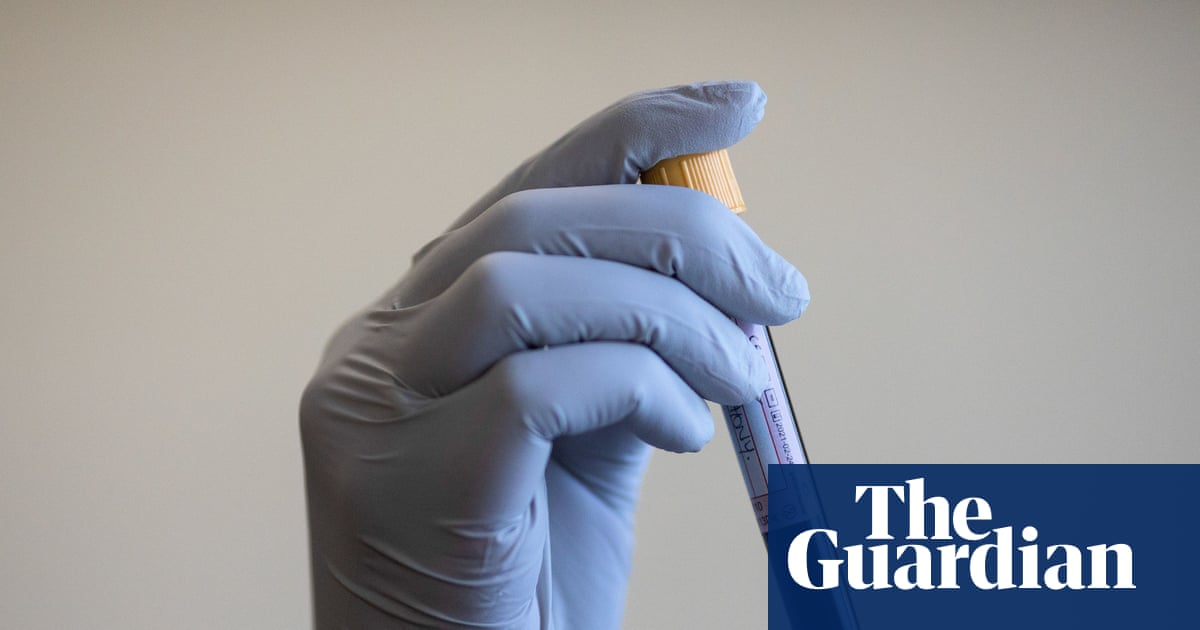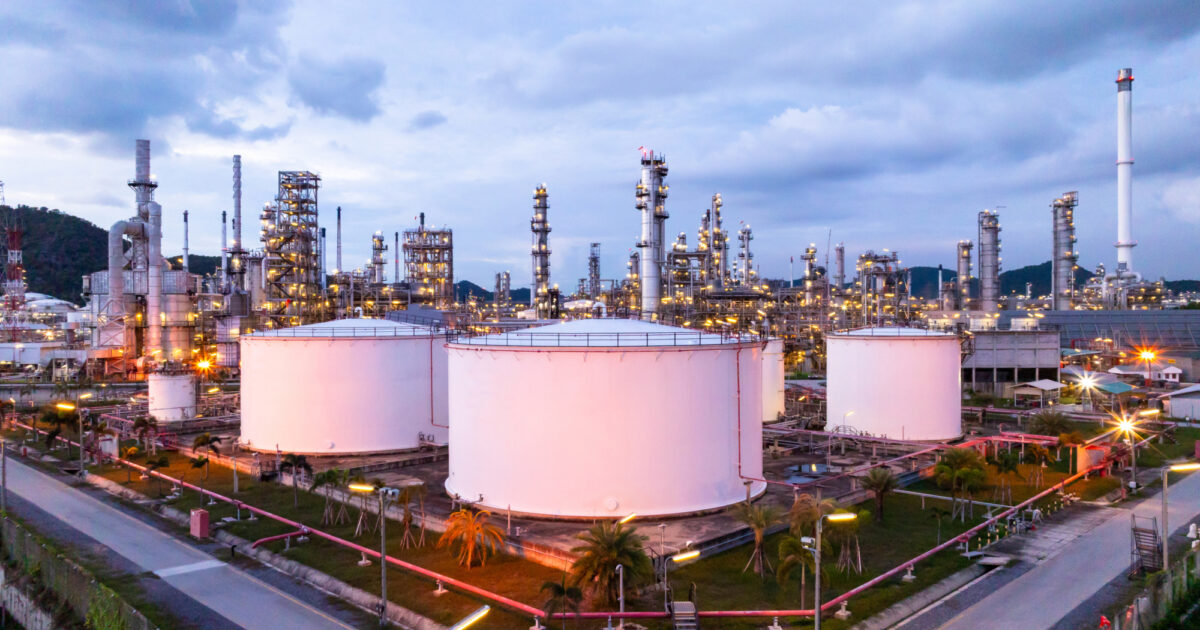Prostate cancer screening can reduce deaths by 13%, a study suggests.
Cancer screening experts are assessing whether the UK should introduce a screening programme for prostate cancer, with a decision expected before the end of the year.
The new…

Prostate cancer screening can reduce deaths by 13%, a study suggests.
Cancer screening experts are assessing whether the UK should introduce a screening programme for prostate cancer, with a decision expected before the end of the year.
The new…

The “hyper-personalised” nature of AI bots is drawing in teenage boys who now use them for therapy, companionship and relationships, according to research.
A survey of boys in secondary schools by Male Allies UK found that just over a third…

Englewood Cliffs, N.J., – October 29, 2025 – Children and adults face challenges with focus and attention. This not only makes learning difficult but can seriously impact a person’s ability…

Tokyo, October 30, 2025 – NEC Corporation (NEC; TSE: 6701), a leading global IT and network transformation services provider, and e&, a global technology group, have announced a strategic partnership. The two organizations have signed a Memorandum of Understanding (MoU) establishing a framework for joint sustainability initiatives focused on reducing environmental impact, advancing social inclusion, and creating long-term economic value.
The MoU was signed by NEC’s GCC branch and e&, aligning the two companies on collaborative programs that advance responsible growth and underpin transparent sustainability governance.
Operating in 38 countries across the Middle East, Asia, Africa, and Europe, e& is focused on driving sustainable growth, digital empowerment, and innovation. With a strong commitment to Environmental, Social, and Governance (ESG) principles, e& continuously seeks partnerships that amplify its positive environmental and social impact.
NEC, sharing this vision, integrates sustainability into its operations and global supply chain, prioritizing environmental harmony and responsible growth. This shared commitment forms the foundation of their new strategic collaboration.
Under the MoU, the two companies will explore joint initiatives to reduce their environmental footprint, develop low-carbon and energy-efficient solutions, and promote circular economy practices. The collaboration also covers areas such as renewable integration, resource optimization, and transparent sustainability governance—all designed to accelerate the transition toward a more sustainable digital future. This MoU with NEC is an initiative that stems from Project Life which is a transformative initiative launched by e& Group Procurement to drive its Responsible Sourcing Strategy and align with the e& group-wide sustainability vision of 2030, further reinforcing e&’s commitment to sustainable and responsible sourcing.
“I firmly believe that strong partner relationships are the cornerstone of our success. These partnerships are not only instrumental in driving innovation, efficiency, and mutual growth but also play a pivotal role in fostering sustainable practices that benefit our communities and the environment. Together, we are committed to building a future where collaboration, trust, and sustainability converge to create shared achievements and long-term value for all stakeholders.”
Saeed Al Zarooni – Group Chief Procurement Officer of e& Group
“Through this MoU with NEC, we’re aligning delivery with our Climate Transition Plan, ‘Ambition to Action’, which outlines our pathway to net zero. This partnership reflects our shared ambition to accelerate sustainable innovation and deliver meaningful impact. As long-term trusted partners, we are confident that our collaboration with NEC will create lasting value, support environmental goals, and drive inclusive digital transformation for the benefit of our communities and the planet. By combining technology with clear accountability, we aim to help industries transition to a greener, more inclusive digital future.”
– Andrew Dunnett, Group Senior Vice President of Sustainability, e&
“We are proud to collaborate with e& through this MoU to support both business growth and sustainability ambitions. NEC is committed to delivering innovative, energy-efficient solutions that help drive environmental progress and operational excellence through technology and shared values.”
– Masayuki Kayahara, Corporate SVP, Global Network Division, NEC Corporation
Together, NEC and e& aim to set a benchmark for sustainable innovation, fostering a legacy of environmental stewardship and positive societal impact.

An Italian study shows that everyday dietary patterns, not just genetics or toxins, may influence Parkinson’s disease risk, highlighting the protective power of fruit and the potential harm of sweets and processed meats.
Study:

EXCLUSIVE: Grindstone Entertainment Group has taken domestic distribution rights to the mixed martial arts action drama Beast in Me starring Oscar winner Russell Crowe, Daniel MacPherson, and Luke Hemsworth.
Crowe co-wrote the…

Fossil fuel companies made over €180bn in profits in the EU in the two years following Russia’s invasion of Ukraine, analysis on behalf of T&E shows [1]. T&E calls for excess profits to be taxed and for that money to be used to reduce low-income households’ exposure to fuel and energy price fluctuations.
During periods of international tension or shocks, the price of fossil fuels rises rapidly, despite relatively stable production costs. As a consequence, the profits of oil and gas companies can rise significantly. The analysis reveals that EU oil and gas companies generated over €104 billion in profits in 2022, a 45% increase from the previous year. They then fell by 21% in 2023, but remained significant at over €82 billion.
In response to higher global energy prices, governments sought to mitigate the impact on residential and industrial consumers through various measures, including tax reductions and exemptions for consumers. While this did soften prices for consumers, it also kept demand for oil and gas high, which then filled the pockets of fossil fuel companies.
The EU faces a clear policy choice: either phase out fossil fuel subsidies or impose sustained taxes on excessive profit, says T&E. The current approach of maintaining in excess of €100 billion in annual fossil fuel subsidies, while allowing the temporary windfall tax to expire, leaves consumers bearing the double burden of subsidy costs and inflated energy prices.
Antony Froggatt, senior director at T&E, said: “Oil and gas companies have made fat profits in recent years due to circumstances completely out of their hands. Government measures that keep fossil fuel demand high, like fuel duty cuts in times of high prices, simply end up shifting wealth from the public purse to private oil and gas companies. This isn’t fair. The EU must tax oil companies’ excess profits for a fairer deal for European citizens, or end subsidies that are hurting taxpayers.”
In 2005, the EU Emissions Trading System (ETS) introduced a market price for CO2 emissions from the power sector, parts of the transport sector and the industrial sector. This has driven innovation and behavioural change, reducing greenhouse gas emissions and raising over €230 billion. In 2024 alone, nearly €39 billion was raised.
From 2027, the EU will also price emissions from buildings and road transport, more directly impacting householders with gas, coal, or oil heating and the drivers of petrol and diesel cars. Oil, gas and energy companies are expected to pass these costs on to consumers. T&E has estimated that the ETS2 could raise nearly €50 billion a year [2]. T&E calls for these funds to be used to make green alternatives like social leasing schemes and public transport more accessible and affordable, while a significant chunk should also be returned to citizens in the form of a climate dividend. Taxing excess profits would also give the governments more money to help people with the transition, says T&E.
“Governments should tax fossil fuel projects and use that to help citizens switch to greener alternatives. It’s likely oil, gas and energy companies will simply pass on the costs of the ETS2 to consumers. Taxing excess profits would ensure that money comes back to citizens to fund things like €150 a month EV schemes and better public transport,” concludes Antony Froggatt.
Note to editors:
[1] An independent study of net profits in the fossil fuel value chain was commissioned by T&E, carried out by PwC Belgium. Net profits in the EU were extrapolated by the consultant PWC from a sample of 114 fossil fuel companies. Estimates were primarily derived from publicly available company financial statements, corporate websites, and intelligence sources such as Factiva and Forbes, or, where necessary, estimated using a combination of traded volumes and market prices. Due to variations in company reporting practices, activity segmentation, and data availability, these figures provide an approximation rather than a precise measurement of profits. As the methodology relies on assumptions and extrapolation, the aggregated results should be considered as an indicative as opposed to precise assessment of the total profits generated across EU fossil fuel value chains.
[2] On average between 2027 and 2032, assuming an average carbon price of €55/tCO2

The Samsung…